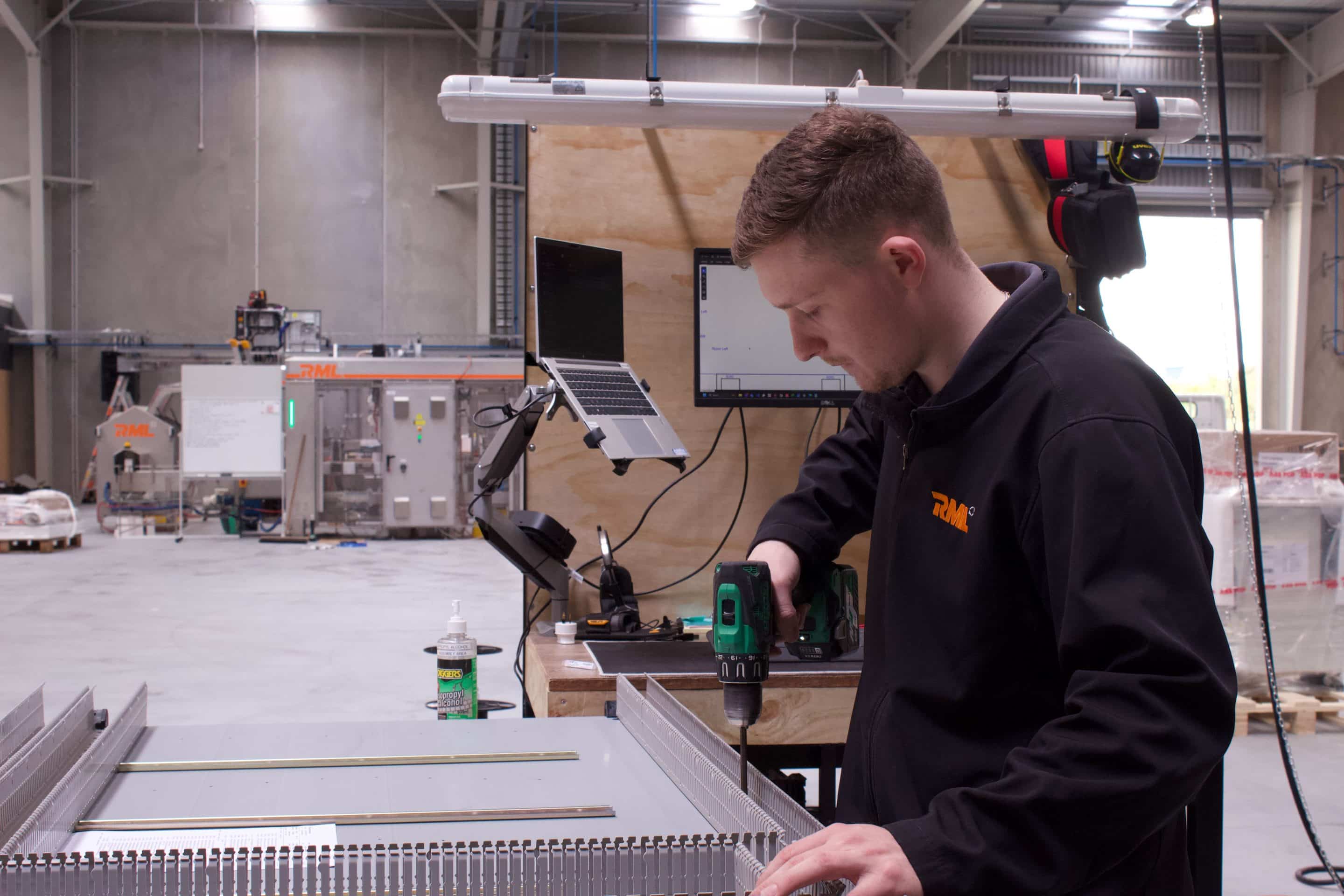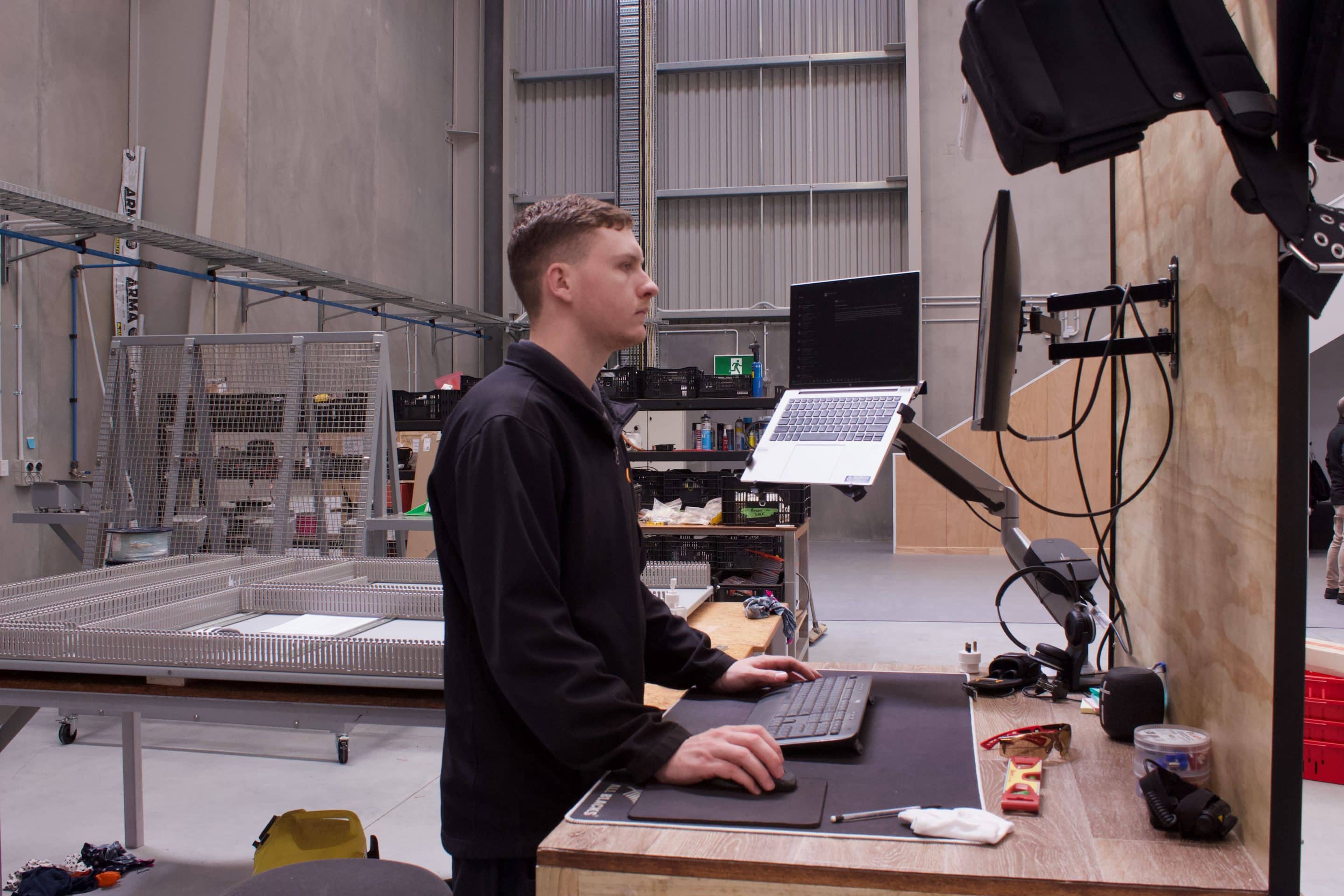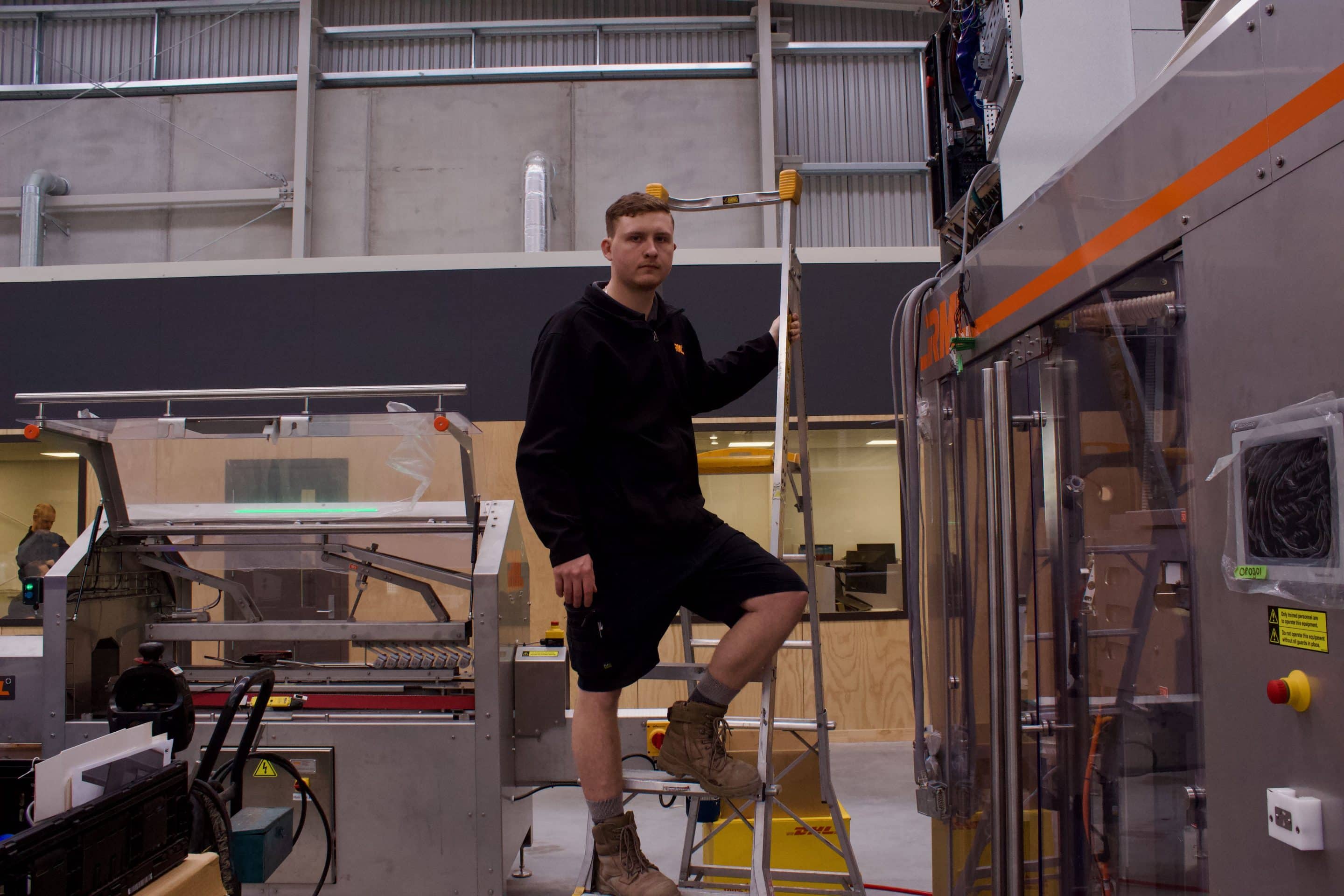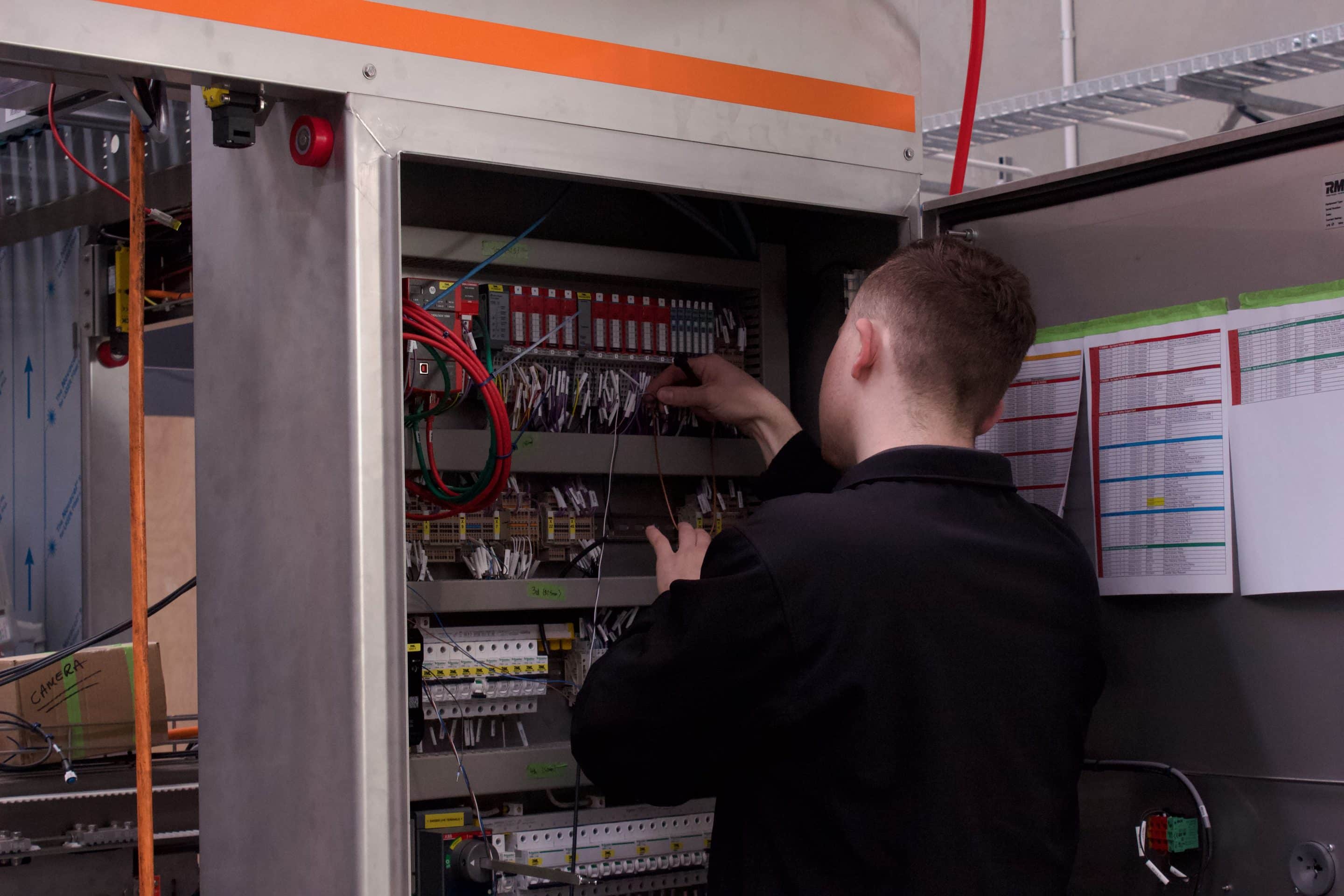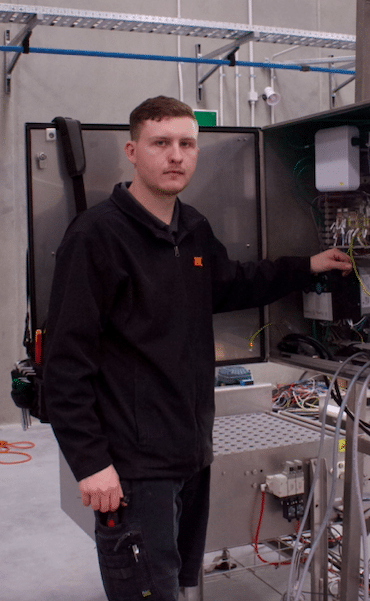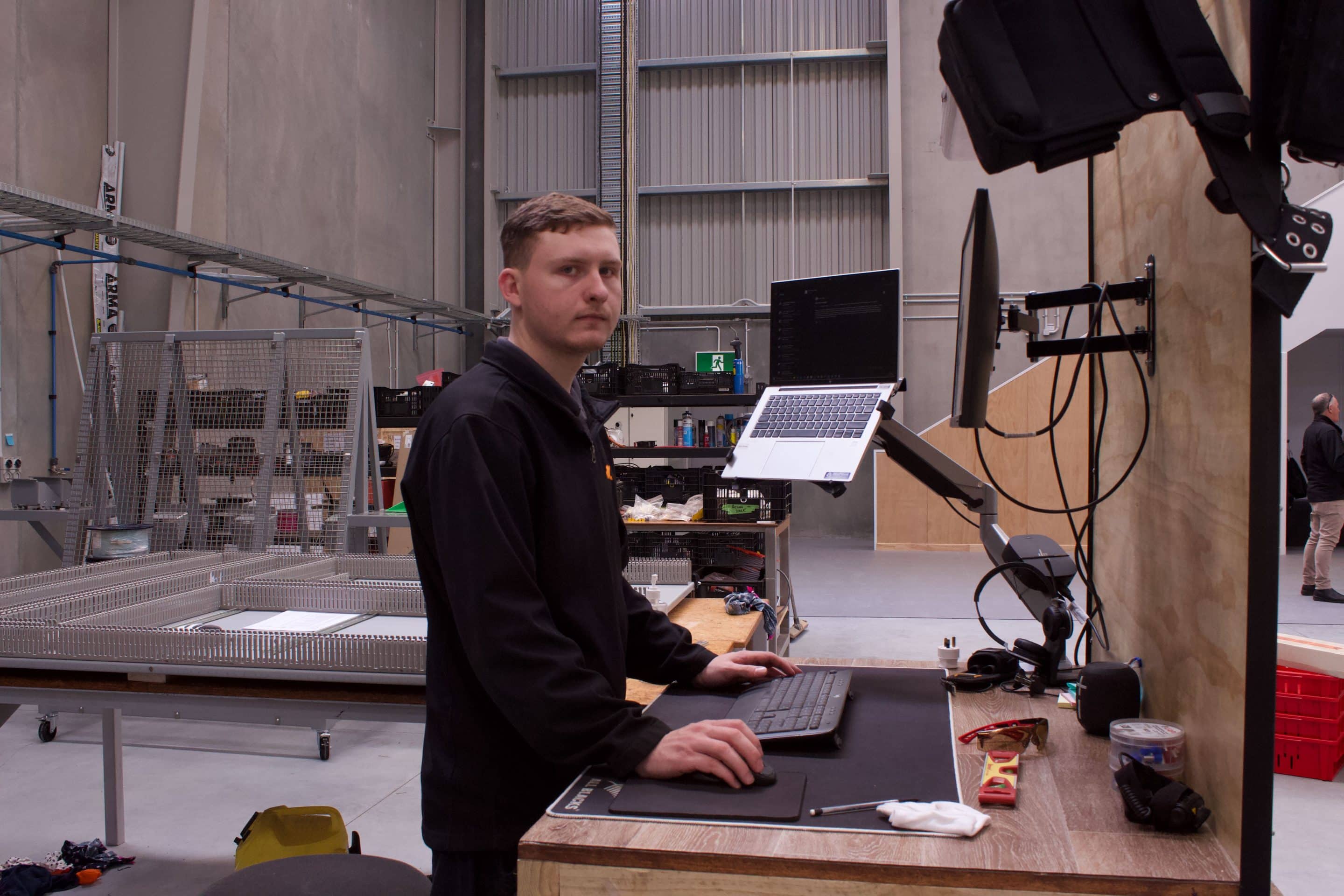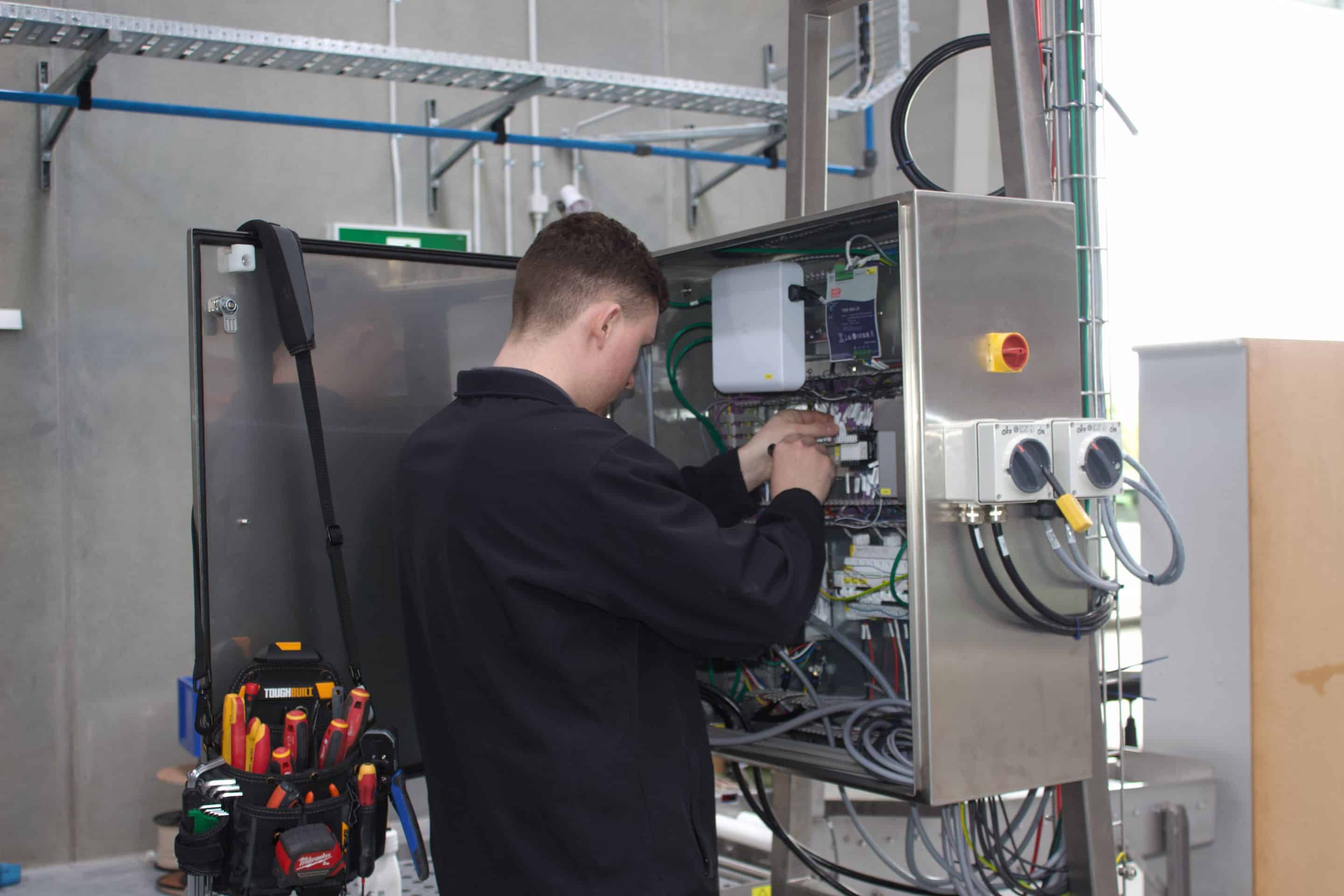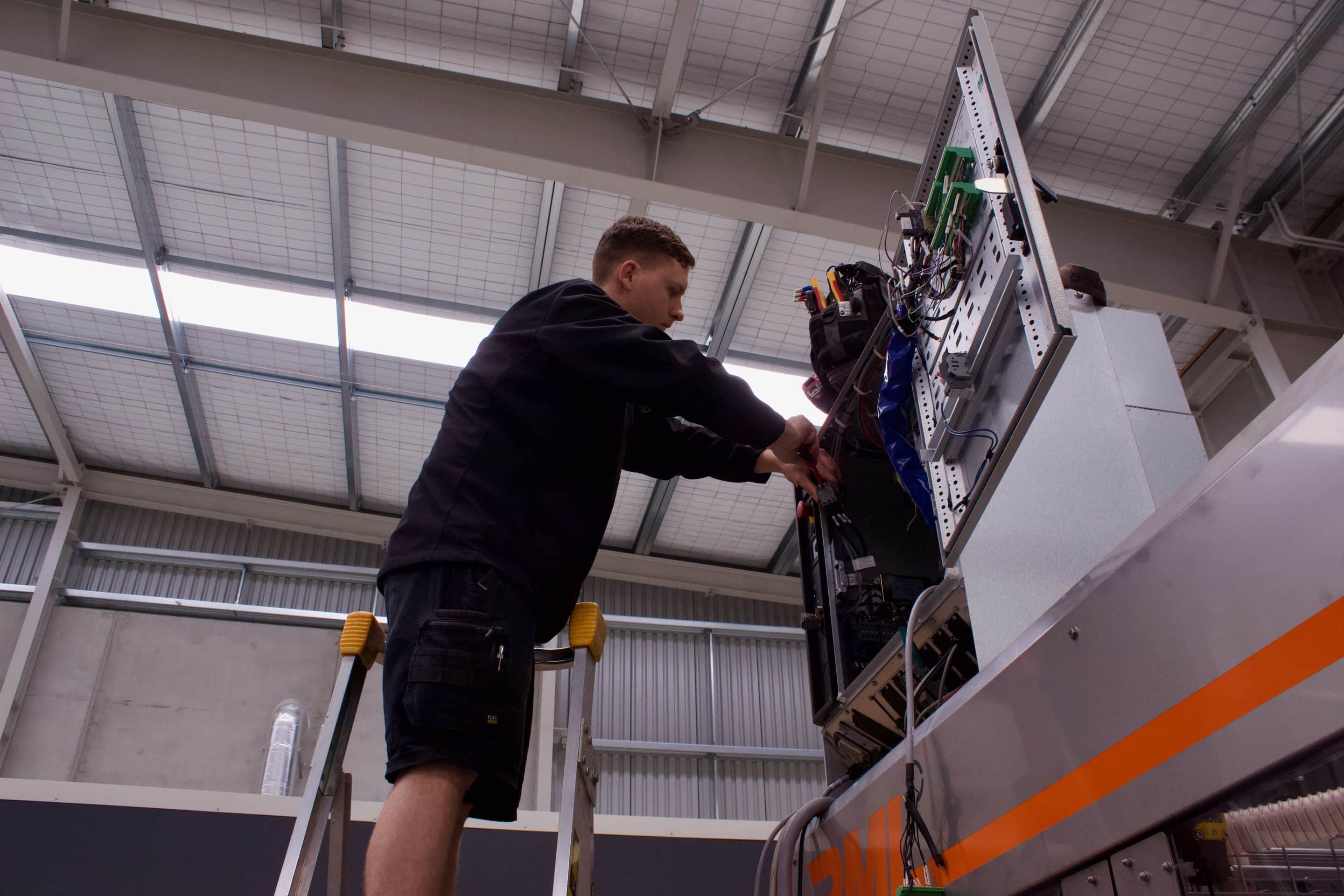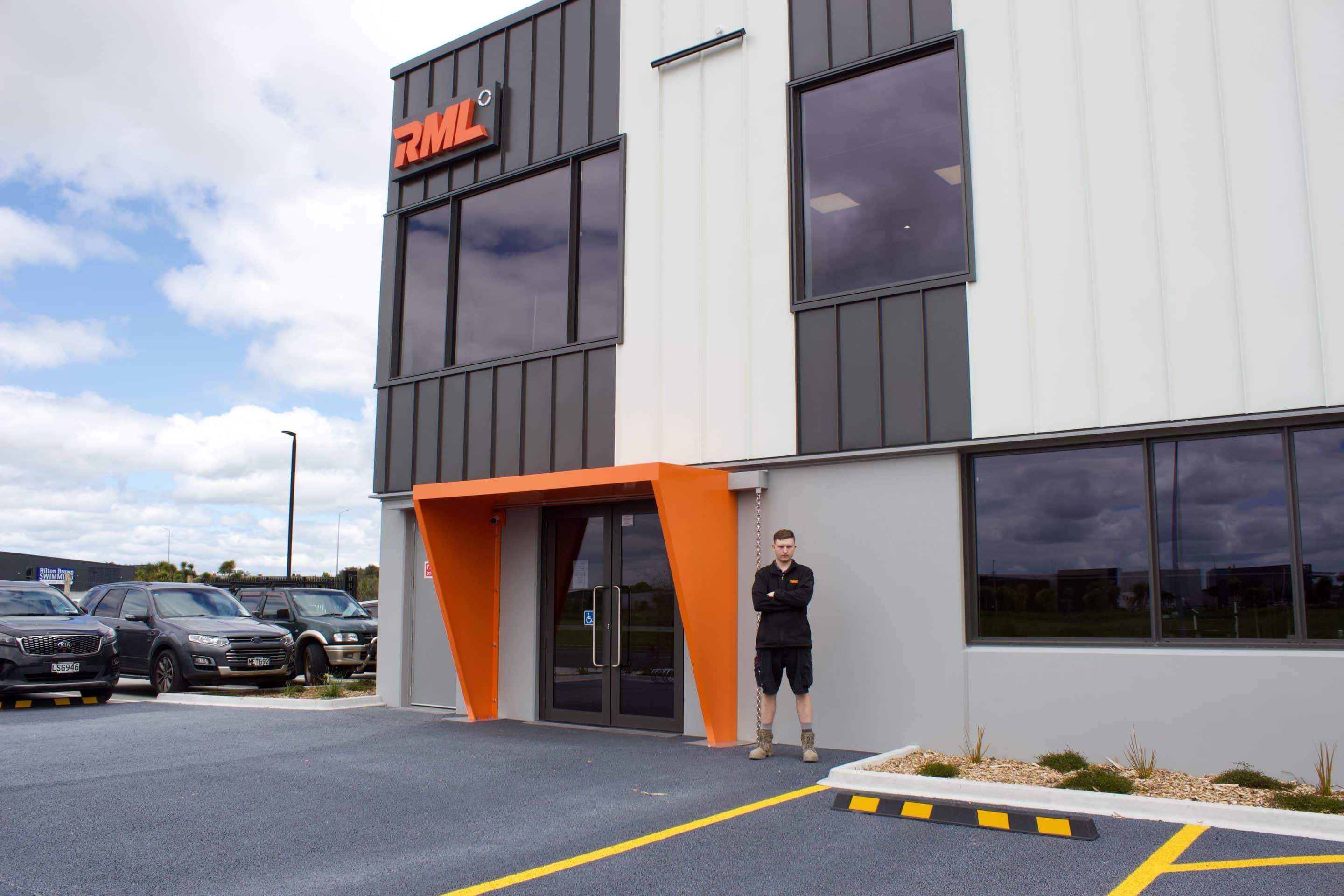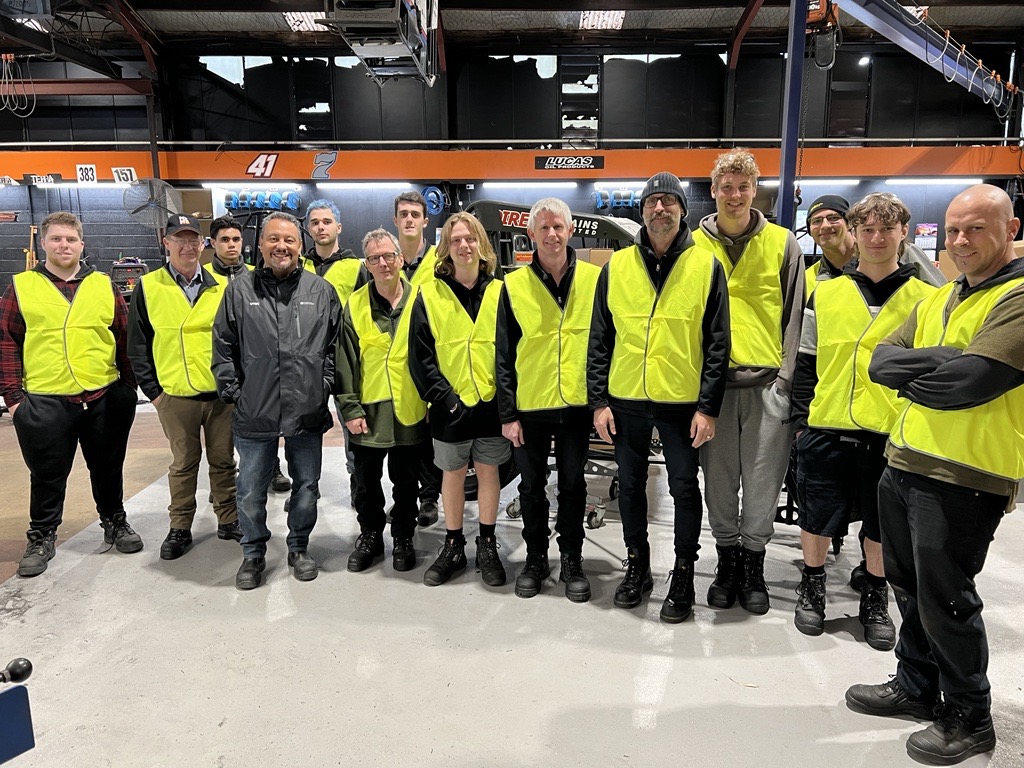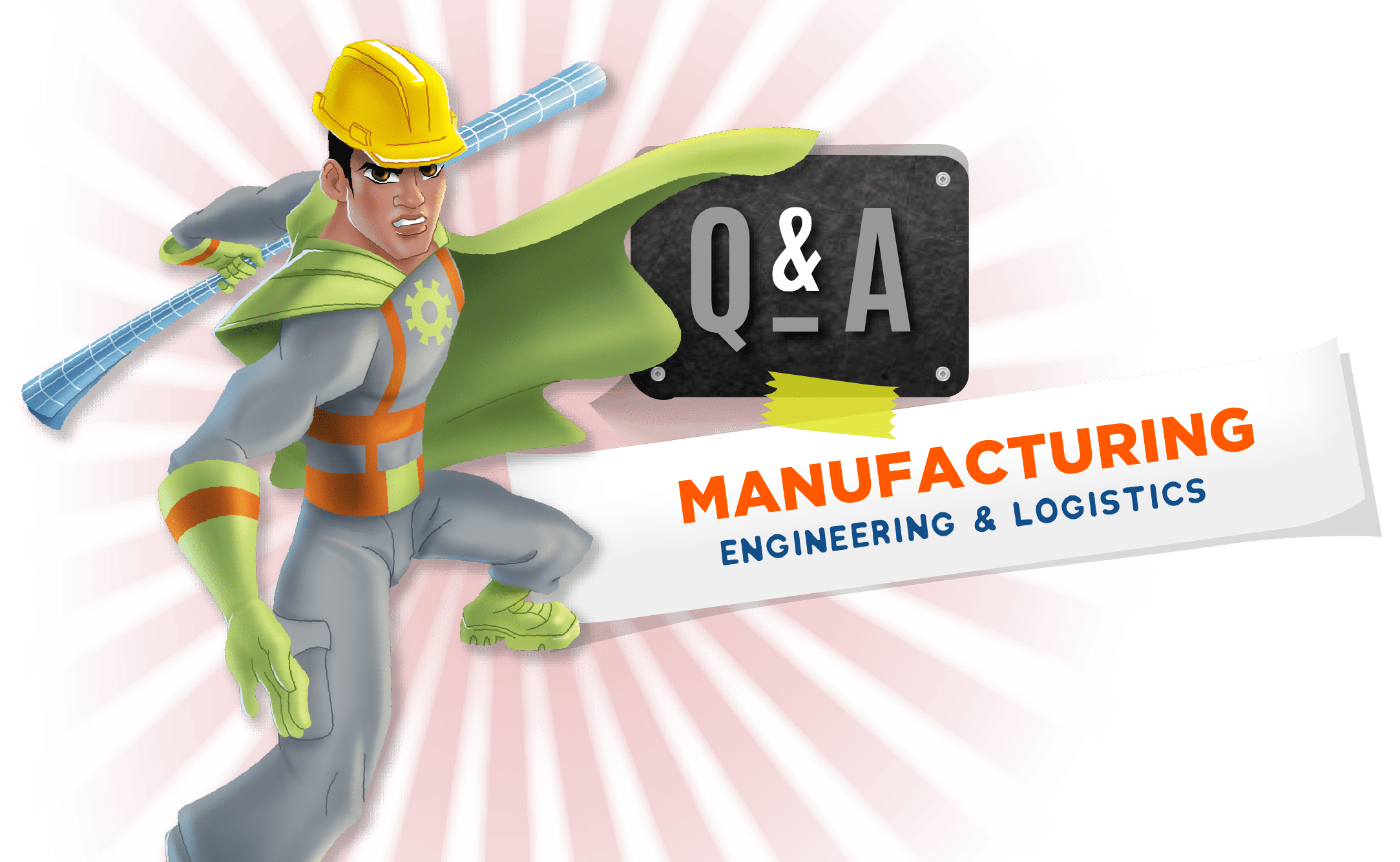
From classroom to circuit boards: School matters in real-world robotics
Meet Taine, Electrical Apprentice at the innovative Hamilton-based automation company, RML Machinery. He’s here to bust a myth: all those school subjects you think you’ll never use? They come back, and they’re more important than you’d think!
Taine admits, “Looking back, I wish I’d paid more attention in calculus and maths—they’re everywhere in my work now.”
RML design and build customised production automation machinery for businesses, using robotics, control systems and high-quality components. Exciting stuff for creative types like Taine!
FutureForce® popped in to visit him at work to see what he gets up to on the job…

Taine Sinclair
Electrical Apprentice
Diving into a career in a high-tech industry, Taine learned that the workforce is fast-paced and challenging, but with some grit and curiosity, you’re well-prepared for success—even if it feels like the deep end at first!
A Chat with Taine about his role at RML
Taine Sinclair

What does an Electrical Apprenticeship at RML involve?
We make customised automation machinery, so we assemble it in the workshop, then the machines get dismantled and shipped around the world to their destinations. We send machines throughout New Zealand and then internationally to Australia, the United Kingdom, the United States and India.
As an Electrical Apprentice there are a whole lot of tasks, I complete such as wiring machines, installing machines and travelling to the site to install.
How did you get this job?
I started here fresh out of year 13. I saw the ad on Seek and I knew I wanted to do an electrical apprenticeship. At that time apprenticeships were hard to come by, so I just jumped at it. I was lucky to stumble upon this job with everyone vying for the same roles. At the time I didn’t know exactly what I was applying for, but knew it was an apprenticeship, and three years later here I am!
What got you interested in an electrical apprenticeship?
Through school I did a lot of practical subjects, and these were always my favourites. Because of this I had always had my mind on doing an electrical apprenticeship. My high school offered a careers pathway subject at MIT in Manukau doing an electrical pre-trade. In Year 12 this was a one day a week course, and then Year 13 it wasn’t offered at my school, so that’s when I moved to another school where it was. I did the pre-trade again in Year 13, in both electrical and CNC programming, Monday to Wednesday at school, Thursday and Friday at tech. It was difficult to complete my level 3 while being out of school for so long, but I found the balance and managed to complete it.
Another factor that interested me about being an electrician was the money and earning potential. Being an electrician opens many pathways to growing your career. Many people within RML started as electricians and worked their way up to business ownership, and management positions.
What do you love about your job?
I honestly enjoy the challenging parts of my work because this keeps it interesting. My work involves a lot of fault-finding and problem solving, which prevents the job getting stale.
What are some challenges you faced at RML?
Staying on top of the apprenticeship has been the hardest part for me. You work a full-time job and then go home and study or practice. Make sure you stay on top of it, so you don’t fall behind. This is where your time management and personal responsibility becomes important. It seems like a long way away while you’re in it, but you must remember there is an end goal you are working towards and keep pushing for that.
What is your advice for keeping balanced?
Having hobbies is always the best advice, this means you can take your mind off work with something fresh and separate work from outside life. You also need to make a conscious effort to slow down. When I started my apprenticeship, you feel like you must get everything right, which you don’t. Everyone is understanding of the fact you are learning.
What are your career goals?
Seeing as I am finishing up my apprenticeship, this is something I have been thinking on myself. The last year and a bit I have started doing more technical drawings of the electrical elements of machines. I am thinking of moving towards automation engineering as this is a side of my job I have enjoyed and found interesting.
Taine’s apprenticeship Tips
What sort of person suits an electrical apprenticeship?
Someone who is keen and always wanting to learn. There is so much learning to do both with tools but also theory. There are three years of theory to complete while you work a full-time job. You need to be determined and want it bad enough to keep pushing to the end. Being a fast learner and having good people skills is also useful because there is a lot of talking, not just to coworkers but customers as well.
What would your advice be for a new apprentice?
Take on as much knowledge as you can from everyone, that’s something that helped me out at the start. Here at RML there are a lot of capable people, and they all have a lot to share. Sometimes it can be overwhelming so just take it all in and ask lots of questions.
What have you learnt on your apprenticeship?
Communication is massive, as I have had quite a lot to do with dealing with customers. That is a whole different ballpark than just communicating with friends or coworkers. It requires more corporate language and professional email writing.
Time management is something you learn in full-time work, showing up every day, completing tasks and being reliable to hold on to a job.
Although it sounds broad, skills-wise you learn all basic electrical skills. For what we do the focus is on control panels, which not every electrician gets to do. Working with PLC (programmable logic controllers – the brain of the machine) and working alongside automation, I have learnt skills from this role too.
What is your advice for an electrical apprenticeship?
Just be keen to learn and have a good attitude. Most people in the workforce are willing to teach those around them. But you need to be willing to learn, you aren’t expected to know it when you are new, but it is about having the right attitude.
Tasks for an Electrical Apprentice may include:
- Installing machines
- Electrical repairs
- Trouble-shooting faults
- Electrical installations
- Installing wiring systems or switchboards
- Preparing and cleaning word spaces
- Electrical inspections or testing
- Testing circuits
- Installing conduits between devices
Things to know before leaving school
Taine shared his experience when transitioning from school to work. Heres what you need to know:
“In school people often say, “why am I learning this, I’m never going to use it!” You do end up using it! Looking back, I wish I had paid more attention in calculus and maths. The workforce is fast-paced, and you sometimes feel like you are thrown in the deep end, but you’ve got this!”
Some important subjects to take for an electrical apprenticeship:
- Technical drawings/design visual communication
- Metalworking class, I learnt welding, turning, milling, sheet metal work, and fabrication work.
- Maths and calculus, they don’t teach you this you on job – you are expected to know it.
About RML
RML is where innovative design and precision engineering come together to create outstanding Production Automation systems and components.
Their focus is on solving production challenges that free their customers’ human potential, which across over 40 years of operation has earned them a reputation for always delivering exceptional solutions.
“RML is a large company but feels like a small company with a great work environment. Everyone is understanding, flexible, and it feels like they are looking out for you. If you need time off or have an appointment, they will work around your schedule. At RML there is a good work life balance, I work 7am to 3:30pm and the work doesn’t overflow and take up my personal life.” – Taine
Learn more about RML


